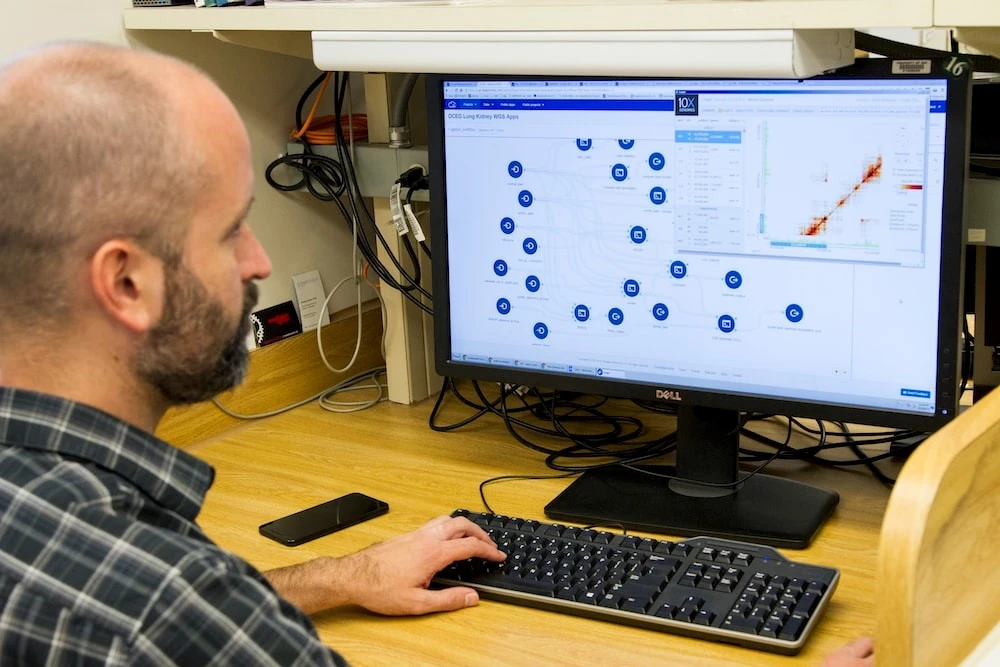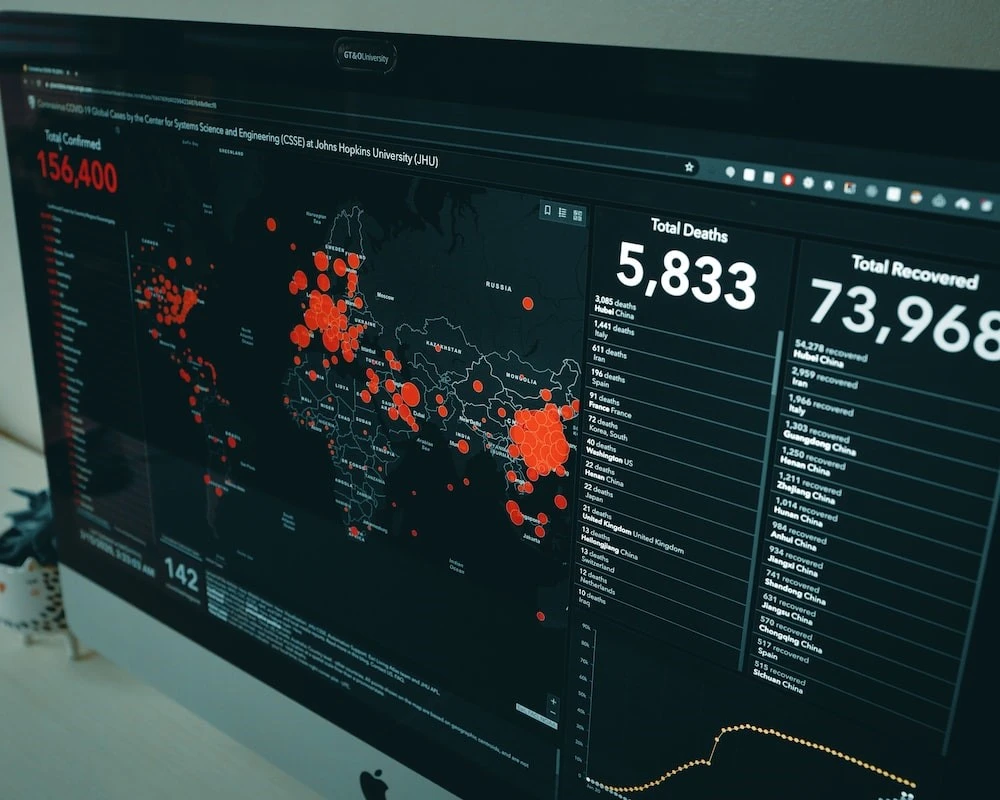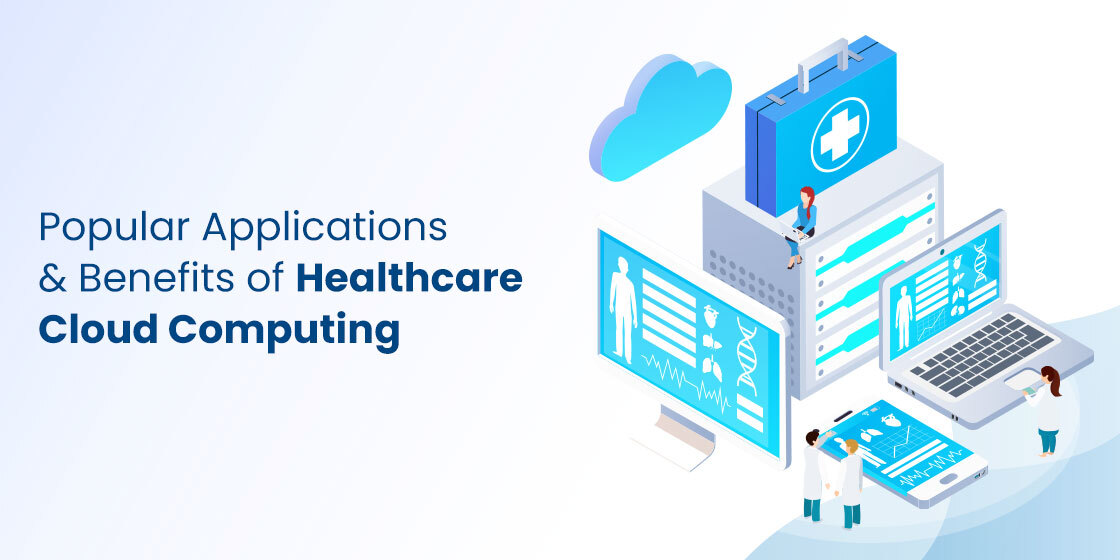Table Of Content
Discover How Cloud Computing in Healthcare is Helping Drive Transformation
The healthcare industry has long been overdue for a digital transformation. For years now, the industry has been slow in adopting various technological advancements despite success from a variety of industries. But the COVID-19 pandemic forced many hospitals to adopt different IT solutions just to survive through it, with healthcare cloud computing one of the most popular options among them.
The reason for its popularity is that unlike other technological advancements like IoT etcetera, cloud computing solves one of the most inherent problems of the healthcare industry – handling large amounts of data. Today, the growth of cloud computing in healthcare is so explosive, that it is expected to value in at around $90 billion by 2027.
So now we have an idea that cloud computing is important to the industry. However, why exactly is it so important? What is it about cloud computing in healthcare that makes it a primary technological focus of the industry?
Let’s dive in and find out the benefits of cloud computing in healthcare and medicine, and see why custom software development services are focusing on cloud computing today.
What is Healthcare Cloud Computing?

When we talk about healthcare cloud computing, there is sometimes a little confusion as to what the practice entails. In essence, it refers to the implementation of remote servers that store, process, and otherwise manage the data for the hospital or organization. The servers are connected to the organization via internet, allowing for a constant stream of data to flow back and forth between the two nodes.
Before that, the records were stored on the premises, requiring tech specialists to be there on hand to manage that data server when needed. However, since the US launched the EMR rule, which required hospitals to digitize medical and patient records, more and more healthcare organizations are looking for cloud solutions for their organizations in order to make the process simpler.
Today, healthcare is an industry that creates one of the highest amounts of data in a day, and cloud computing is one of the most popular, and effective ways for them to tackle it and still cut costs.
So now that we know what cloud computing is used for in the industry broadly, let’s dive in and discover what benefits it offers to the organizations that opt for custom healthcare software development.
Seven Benefits Healthcare Cloud Computing Offers Its Users

While cloud computing in healthcare has several benefits, discussing them all here would be next to impossible. That is because from the actual benefits vary wildly from organization to organization, as each entity tailors the solution to their needs. However, we have compiled for you seven of the most common benefits that healthcare cloud computing offers its users.
Let’s find out what they are.
One – Electronic Medical Record Management
One of the first pros of using cloud computing in healthcare deals with the most critical pain point – that of dealing with records and data. The healthcare industry deals with large amounts of data for record keeping, research, and many other purposes.
Managing that collection of data in a way that makes it easy to access and use when needed is something that organizations have been searching for a long time. Storing that data alone takes a massive amount of work and resources, both physical and financial. And by converting to an easily accessible, digital records-keeping system over a paper-based system, they would be able to cut costs by a large margin, even when factoring in the cloud software development cost.
Two – Collaborative Patient Care Globally

Cloud storage doesn’t just help us make data storage easier. It also allows us to share that data with others in need of it more easily and quickly too. in healthcare, this allows for simpler collaboration between healthcare institutes when talking about patient care.
for example, a patient living in Los Angeles and getting treated for a rare disorder there is referred to a specialist in New Jersey. Now, as they were being treated for a long time, they would have a comprehensive medical file of their history.
Now, when going to New Jersey, they would have had to lug around a huge medical file with them if their hospital used a paper-backed system. But as both hospitals in New Jersey and Los Angeles use a digital storage system, the LA hospital would have no issues sharing those records instantly with the doctors in New Jersey.
And this isn’t just for the same country. This exact application can be used for people who are travelling across the globe for treatments. Overall, this can help medical professionals acquire your medical records when needed, near instantly.
Three – Greater Data Security
As we talk about the ease of sharing sensitive data like medical records for a patient, we also need to discuss the security implications of it. While it’s true that digitalization is better than a physical records-keeping system, it also increases the chances of that data being accessed by someone unauthorized.
In the past, doctors did face the loss or theft of physical medical records, which made them highly insecure. Then, digital recordkeeping was introduced, but that still had the tendency to lose data to malicious users. So if paper records weren’t safe and neither were digital copies, what are healthcare organizations to do?
The best solutions would be to go for a HIPAA-compliant cloud storage, which allows the creation of a data processing agreement. Unlike a dedicated digital system that could be compromised at the hospital facility, you could now store all your data onto the cloud, thus ensuring that your data is comparatively safer than if it had been on a local server. Specifically, these cloud services providers are especially well-versed in data privacy and security, which allows for better securing of patient data.
Four – Scalable Region-Wide Enterprise Systems
Implementing healthcare cloud storage is a great way to start your organization’s digital transformation. However, it is but a paving stone towards larger, more comprehensive, region-wide software solutions, most ideally those involving big data.
Let’s take the example of a pandemic, such as COVID-19 recently. Such pandemics and health issues are a country-wide problem, and often rely on data provided by doctors and healthcare organizations across the country. That data is important, and often time-sensitive, so that public health organizations can use to identify trends in the disease spread, or check for its spread.
If the data in this case would be physical, it would take a long time to receive it, and then use that data for the required analysis. On the other hand, with a digital storage system, this transfer of data would be near instantaneous.
Five – Increased Patient Safety
Alt-text: Dementia patient getting checked by nurse
Your patient’s medical records are some of the most important pieces of data that a healthcare company has. And as per international and national regulations, protecting that data is imperative at all costs.
Moreover, it can also help healthcare professionals view and add to an patient’s file, allowing for a more comprehensive patient profile creation, especially for those who are at risk. Let’s say that a patient with a history of bipolar disorder and depression, who travels all across the country, and has been treated at a number of different medical facilities and ERs, has a comprehensive medical record.
Having a file that is accessible to the hospitals, allowing them to add their own findings or treatments to it, and flags the patient as someone at risk, would go a long way towards protecting the patient. It would also help the doctors identify what medications the person is on, especially if they are unable to do it themselves, as well as the comprehensive patient history quickly and easily.
Six – Collaborative Medical Research
We have now talked about how healthcare cloud computing can be beneficial for patients as well as hospitals in managing their care and data. However, healthcare isn’t just limited to patient care and convalescence. There is a major research industry that works on finding cures, better treatment plans, and more for diseases and disorders.
There are research teams right now who are working on stem cell research to cure a number of previously incurable diseases. And often, their fields of study overlap. However, as these teams are spread across the globe, a cloud-based information collaboration system could allow researchers to work together towards a common goal.
Moreover, it can also help doctors consult and diagnose exotic diseases in countries where they are virtually unheard of, by conducting a differential diagnosis with their peers in other geographical locations.
Seven – Seamless and Flexible Patient Care
As we move forward with the digital transformation, we see that just cloud computing for healthcare isn’t enough for better patient care. We also need to improve our infrastructure and capabilities using latest technological advancements like IoT and AI. Using an array of biosensors with an AI alerting system included, many different hospitals are experimenting with such solutions.
Around us, we are now seeing an abundance of wireless sensors and devices that connect to their network via Wi-Fi, Bluetooth, NFC, and even RFID. These wireless sensors allow us better penetration among the masses, and allows us to prioritize those that require hospitalization over those that just need to be observed.
For example, during the COVID pandemic, services like emergency rooms, ambulances, and more were swamped due to the number of calls and visits by patient. Many of them had milder symptoms, but were still admitted in order for doctors to observe them.
Now, suppose they could’ve been sent home with an array of wireless sensors that checked their vitals and uploaded them to your cloud system. Meanwhile the accompanying AI would automatically alert the emergency services should the patient be in any danger. If that had been the case, then it would have decreased the stress and workload of the hospitals and its staff, allowing them to offer better care to their most critical patients.
This kind of custom software development with hardware and cloud integration is what many healthcare entities are working towards, and what we will be seeing in the near future.
Popular Applications of Cloud Computing in Healthcare and Medicine

Suffice to say that there are a number of massive benefits that healthcare cloud computing offers. And it isn’t just a theory either. Hospitals like Chicago’s Rush University Medical Centre, are using cloud services to aid their professionals in all aspects of hospital life, integrated right into their patient and ERP software system.
From data entry, to finance and admin, and even doctors, everyone at the institution uses cloud computation services to help them improve their efficiency. For example, doctors enter the findings from a patient’s tests into the system, and adds their comments and diagnoses to it. However, the system also evaluates the symptoms and findings, and suggests additional insight into the doctor’s diagnosis.
So, in what ways are the hospitals currently using it?

As we have discussed multiple times earlier, one of earliest and most prevalent use of cloud computing is record keeping. In hospitals around the world. They are being used in record and analyze patient data for better results.
Moreover, it also allows them share that information if needed to doctors and medical facilities across the world,
Clinical Research and Development

The next application is its use in research and development for the field of healthcare and medicine. In fact, this is quickly becoming one of the most popular ones nowadays. Many medical research centers and hospitals that are working on finding better treatment plans and cures for people, and this helps them collaborate with their peers in their research.
Telehealth and Patient Care Service
Finally, one of the biggest applications of cloud computing in healthcare is that of telehealth. This allows patients to access a variety of medical services based on their medical history, from their health partners or insurance networks.
Moreover, it could also be used as a medical bracelet, with all pertinent information available on it for healthcare professionals in case of an emergency.
Conclusion
Overall, healthcare cloud computing is a great technology that has the potential for massive impact on the quality of healthcare services provided. Moreover, it has the potential to improve the operational efficiency of the organization, as well as facilitate data accessibility for the patients.
Overall, integrating cloud computing in healthcare organizations is the future of any digital transformation strategy in this niche, along with modern technologies like the AI, IoT, and big data.
FAQs
| 1- Which cloud service is best for healthcare organizations? As the healthcare industry requires cloud services providers to be HIPAA-compliant, one of the best options for cloud computing in healthcare can be Google Cloud suite. |
| 2- What kind of cloud-computing model do hospitals and other big organizations use? These large enterprises use the SaaS software model, or software as a service model for their cloud computing and other major services implementation. |
| 3- What is the future of cloud computing in healthcare? Cloud computing can be the gateway for the introduction of other, more advanced technologies such as IoT, big data, and Ai into the field of healthcare and medicine. |
Empower your digital initiatives with BariTechSol, a premier custom software development company. Our skilled team tailors cutting-edge solutions to your unique needs. Elevate your tech experience and stay ahead in the digital realm. Partner with BaritechSol and code the success of your next big idea.


